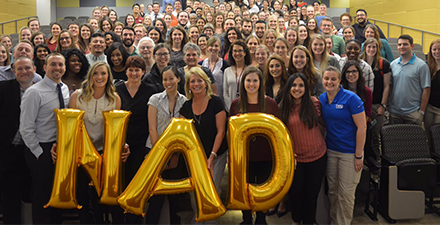It is 6:15 a.m. on a brisk, wintry Massachusetts morning. I am waiting in the well-lit parking lot of a plaza that hosts an outpatient physical therapy and wellness center. It is where I will be spending my next five hours with a new clinical instructor, a full schedule of patients, and a hope that I don't look foolish.
This is my second integrated clinical experience, a new model that my class is the pilot for in the Physical Therapist Assistant Program at Mount Wachusett Community College. With the integrated experience, which accounts for a total of 40 clinical hours, 20 in our first fall semester and 20 in our first spring semester, we are able to dive into the world of physical therapy while concurrently learning a breadth of skills required to become a PTA. It gives students an opportunity to use what they have learned in the classroom in a real physical therapy setting as soon as they learn the ropes. Students get to observe, ask questions, interact with patients, and explore different settings right off the bat.
My first integrated clinical experience was in a public school system. A setting that I never even knew physical therapy existed in prior to starting the program. Now, I have the chance to explore a whole new setting: outpatient.
